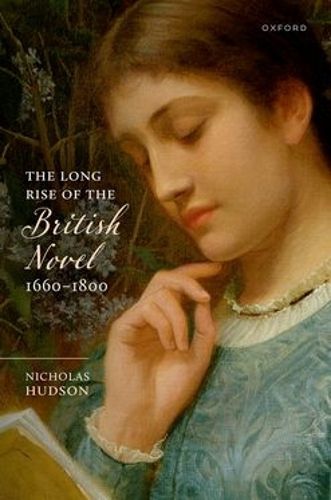Readings Newsletter
Become a Readings Member to make your shopping experience even easier.
Sign in or sign up for free!
You’re not far away from qualifying for FREE standard shipping within Australia
You’ve qualified for FREE standard shipping within Australia
The cart is loading…






The Long Rise of the British Novel, 1660DS1800 offers a fresh interpretation of how the novel in Britain evolved from the Civil War to the end of the eighteenth century. It argues that we must examine the entirety of this period in order to understand the development of the realist novel in its modern form. According to Ian Watt in The Rise of the Novel (1957) and many subsequent critics, the first realist novel was Daniel Defoe's Robinson Crusoe (1719). This book argues instead that the realist novel began to emerge long before in the 1670s and 1680s among novelists such as Alexander Oldys and Richard Gibbs who were influenced by the French counter-romance works of Paul Scarron and Antoine Furtiere. Nonetheless, the true founder of modern realist fiction was Frances Burney, particularly in Cecilia (1782) and Camilla (1796). Burney's achievement was to combine the subjectivity of Samuel Richardson with the social purview of Henry Fielding, creating a fictional style that set individuals in a fully imagined social context. Heralded by her contemporaries as founding a "new era" in novel writing, Burney's only acknowledged peer was Charlotte Smith, who was widely admired during her career as Burney's co-creator of "the new species of writing." This volume argues that Smith's contribution to the development of the realist novel has been underrated, for her fiction established the basic form of the Condition of England novel of the Victorian period. Unfortunately, Burney's and Smith's importance as co-creators of the realist novel was eclipsed by the
$9.00 standard shipping within Australia
FREE standard shipping within Australia for orders over $100.00
Express & International shipping calculated at checkout
Stock availability can be subject to change without notice. We recommend calling the shop or contacting our online team to check availability of low stock items. Please see our Shopping Online page for more details.
The Long Rise of the British Novel, 1660DS1800 offers a fresh interpretation of how the novel in Britain evolved from the Civil War to the end of the eighteenth century. It argues that we must examine the entirety of this period in order to understand the development of the realist novel in its modern form. According to Ian Watt in The Rise of the Novel (1957) and many subsequent critics, the first realist novel was Daniel Defoe's Robinson Crusoe (1719). This book argues instead that the realist novel began to emerge long before in the 1670s and 1680s among novelists such as Alexander Oldys and Richard Gibbs who were influenced by the French counter-romance works of Paul Scarron and Antoine Furtiere. Nonetheless, the true founder of modern realist fiction was Frances Burney, particularly in Cecilia (1782) and Camilla (1796). Burney's achievement was to combine the subjectivity of Samuel Richardson with the social purview of Henry Fielding, creating a fictional style that set individuals in a fully imagined social context. Heralded by her contemporaries as founding a "new era" in novel writing, Burney's only acknowledged peer was Charlotte Smith, who was widely admired during her career as Burney's co-creator of "the new species of writing." This volume argues that Smith's contribution to the development of the realist novel has been underrated, for her fiction established the basic form of the Condition of England novel of the Victorian period. Unfortunately, Burney's and Smith's importance as co-creators of the realist novel was eclipsed by the